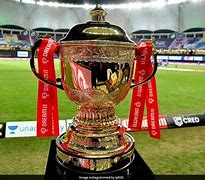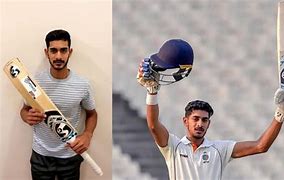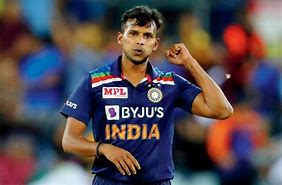Feature
SC asks BCCI to explain effect of Srinivasan not owning CSK
New Delhi: The Supreme Court Tuesday asked the BCCI to disclose the effect on the IPL and Champions League Twenty20 cricket tournaments if its president N. Srinivasan doesn’t own the Chennai Super Kings (CSK) franchise.
“What would be the effect on the Indian Premier League and Champions League if your president does not own a team? If he goes, will it lead to collapse of the project,” the apex court bench of Justice T.S. Thakur and Justice Fakkir Mohamed Ibrahim Kalifulla asked as the apex cricketing body told the court that having commercial interest in IPL were distinct from the conflict of interest issue.
Senior counsel C.A. Sundaram told the court that except for Srinivasan, no other administrator owns a team or has commercial interest in the IPL.
The court sought the list of the people who would be affected if it was to strike down the Board of Control for Cricket in India rules that permitted its members from having commercial interest in the IPL and the Champions League.
The court’s poser to BCCI came in the course of the hearing of the plea by the Cricket Association of Bihar which has challenged a Sep 27, 2008, amendment to its rule 6.2.4 permitting its office bearers, administrator, players and others to have commercial interest in the IPL.
Sundaram, who appeared for the BCCI, told the court that there was no embargo on being an office bearer of the apex cricketing body and having interest in the IPL. He said that the conflict of interest issue arises when two interests clash.
“There is no embargo in having interest in two things but conflict of interest arises when two interests clash,” Sundaram told the court.
“What kind of contract you have entered with whom. Which of these contractors will suffer if rule 6.2.4 goes,” the court asked seeking the list of such people who were the beneficiaries of the 2008 amendment to the rule prohibiting conflict of interest in the cricketing body.
“Millions of people view this game on the assumption that the game is fair. The ‘fair’ is the public function and if you falter on that, then you are accountable,” the court told Sundaram, asking him: “Can you have a person who has commercial interest and then also judge on the conflict of interest issue.”
Opposing the plea challenging the carving of exception to rule prohibiting conflict of interest, Sundaram took the court to the origin of the issue leading to setting up of a committee that suggested the carving out the exceptions that were incorporated in 2008.
Admitting that the BCCI performed certain functions which were in the nature of public duties and some of them were open to judicial review, Sundaram sought to impress upon the court that the cricketing body’s internal functioning could not be interfered with unless it conflicted with statutory provisions it was founded on — the Tamil Nadu Societies Registration Act, 1975.
“Your rules may be sacrosanct for you, not for us. Unless you are able to satisfy us that the conflict of interest is justified in law on the basis of public policy, limiting the jurisdiction of the court to private parties you are not headed anywhere,” the court told Sundaram.
Having said this, the court further said: “You must realise the scope of jurisdiction we are exercising. This is being exercised not to promote you or another person’s cause. It is to promote the purity of the game. If you want 6.2.4 to justify your stance, please satisfy us. What will happen if an administrator will not own a team? Heavens will not fall.”
Earlier, lawyer Rahul Mehra, appearing for a former Ranji Trophy player, told the court that the 2013 IPL betting scandal was not the first to rock cricket in the country. Before it, in 2000, the Hansie Cronje betting scandal rocked Indian cricket and the matter was investigated by the Central Bureau of Investigation (CBI) and nothing came out of it except that former skipper Mohammad Azharuddin and Ajay Jadeja were placed under life ban.
Telling the court that such exposes are invariably buried quietly, Mehra told the court that if it happens once, then BCCI may be justified of ignorance but when it happens repeatedly then there is a complacence towards such things on the part of BCCI.
Alleging that conflict of interest travels not only through administrators, players and legislators, Mehra said: “This has been happening earlier also, they were aware and did nothing to curb or prevent it.”
Describing the 2008 amendment to the BCCI rules, carving exception to the conflict of interest rule in respect of the IPL and Champions League, as a “disguised backdoor entry”, senior counsel Rajeev Dhavan, appearing for former BCCI president I.S. Bindra told the court that the purpose of the game is not commercial.
He said the criminality aspect of what has emerged from the Mudgal Committee report should be examined by a Special Investigation Team, and the issue of disciplinary proceedings for wrong-doings within the BCCI would require an external mechanism to deal with and report to the court.
The hearing would continue Wednesday.
Entertainment
Meghalaya Reserves Legalized Gambling and Sports Betting for Tourists

The State Scores Extra High on Gaming-Friendly Industry Index
Meghalaya scored 92.85 out of 100 possible points in a Gaming Industry Index and proved to be India’s most gaming-friendly state following its recent profound legislation changes over the field allowing land-based and online gaming, including games of chance, under a licensing regime.
The index by the UK India Business Council (UKIBC) uses a scale of 0 to 100 to measure the level of legalisation on gambling and betting achieved by a state based on the scores over a set of seven different games – lottery, horse racing, betting on sports, poker, rummy, casino and fantasy sports
Starting from February last year, Meghalaya became the third state in India’s northeast to legalise gambling and betting after Sikkim and Nagaland. After consultations with the UKIBC, the state proceeded with the adoption of the Meghalaya Regulation of Gaming Act, 2021 and the nullification of the Meghalaya Prevention of Gambling Act, 1970. Subsequently in December, the Meghalaya Regulation of Gaming Rules, 2021 were notified and came into force.
All for the Tourists
The move to legalise and license various forms of offline and online betting and gambling in Meghalaya is aimed at boosting tourism and creating jobs, and altogether raising taxation revenues for the northeastern state. At the same time, the opportunities to bet and gamble legally will be reserved only for tourists and visitors.
“We came out with a Gaming Act and subsequently framed the Regulation of Gaming Rules, 2021. The government will accordingly issue licenses to operate games of skill and chance, both online and offline,” said James P. K. Sangma, Meghalaya State Law and Taxation Minister speaking in the capital city of Shillong. “But the legalized gambling and gaming will only be for tourists and not residents of Meghalaya,” he continued.
To be allowed to play, tourists and people visiting the state for work or business purposes will have to prove their non-resident status by presenting appropriate documents, in a process similar to a bank KYC (Know Your Customer) procedure.
Meghalaya Reaches Out to a Vast Market
With 140 millions of people in India estimated to bet regularly on sports, and a total of 370 million desi bettors around prominent sporting events, as per data from one of the latest reports by Esse N Videri, Meghalaya is set to reach out and take a piece of a vast market.
Estimates on the financial value of India’s sports betting market, combined across all types of offline channels and online sports and cricket predictions and betting platforms, speak about amounts between $130 and $150 billion (roughly between ₹9.7 and ₹11.5 lakh crore).
Andhra Pradesh, Telangana and Delhi are shown to deliver the highest number of bettors and Meghalaya can count on substantial tourists flow from their betting circles. The sports betting communities of Karnataka, Maharashtra, Uttar Pradesh and Haryana are also not to be underestimated.
Among the sports, cricket is most popular, registering 68 percent of the total bet count analyzed by Esse N Videri. Football takes second position with 11 percent of the bets, followed by betting on FIFA at 7 percent and on eCricket at 5 percent. The last position in the Top 5 of popular sports for betting in India is taken by tennis with 3 percent of the bet count.
Local Citizens will Still have Their Teer Betting
Meghalaya residents will still be permitted to participate in teer betting over arrow-shooting results. Teer is a traditional method of gambling, somewhat similar to a lottery draw, and held under the rules of the Meghalaya Regulation of the Game of Arrow Shooting and the Sale of Teer Tickets Act, 2018.
Teer includes bettors wagering on the number of arrows that reach the target which is placed about 50 meters away from a team of 20 archers positioned in a semicircle.
The archers shoot volleys of arrows at the target for ten minutes, and players place their bets choosing a number between 0 and 99 trying to guess the last two digits of the number of arrows that successfully pierce the target.
If, for example, the number of hits is 256, anyone who has bet on 56 wins an amount eight times bigger than their wager.





















